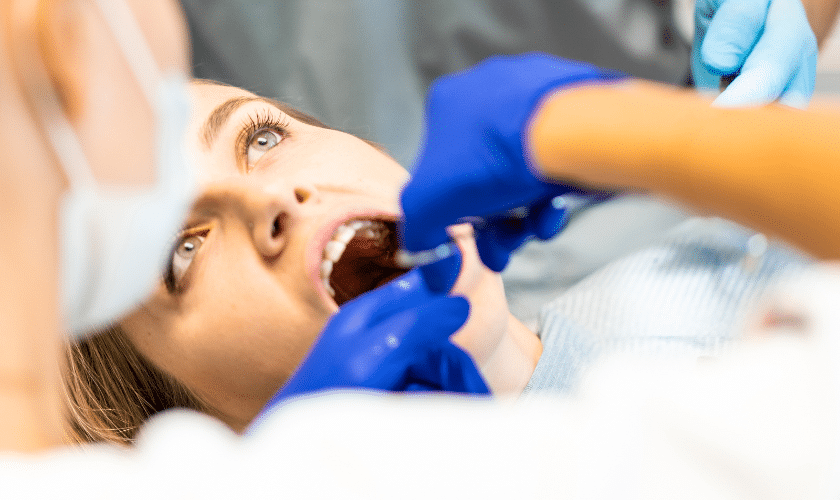Visit Diamond Lakes Dental Today Or Call 501-623-7113
Saving Smiles: Understanding the Essence of Root Canal Treatment for Dental Health

Welcome to our blog post on saving smiles and understanding the essence of root canal treatment for dental health! If you’ve ever experienced tooth pain or have been told by your dentist that you may need a root canal, this article is for you. Root canal treatment is often misunderstood and can evoke feelings of fear or anxiety in many people. However, we’re here to debunk common myths and misconceptions surrounding this procedure and provide you with valuable information to help maintain your dental health.
When is a Root Canal Necessary?
When it comes to dental health, prevention is always the best approach. However, there are times when a root canal becomes necessary to save a tooth and alleviate pain. So, when exactly is a root canal necessary?
One common reason for needing a root canal is if you have an infected or abscessed tooth. This can occur when bacteria enter the pulp of your tooth, usually through deep decay or a crack in the tooth. The infection can cause severe pain and swelling and may even spread to other areas of your mouth if left untreated.
Another situation where a root canal may be necessary is if you have persistent tooth sensitivity to hot or cold temperatures. While some sensitivity can be normal, if it lingers long after the stimuli are gone, it could indicate that the nerve inside your tooth is damaged or infected.
Additionally, if you notice any discoloration of a specific tooth or gum area along with persistent bad breath, this could also be an indication that a root canal treatment might be needed.
Common Myths and Misconceptions about Root Canal Treatment
Root canal treatment has gained a reputation as one of the most feared dental procedures, often surrounded by myths and misconceptions. Let’s debunk some of these common misconceptions to help you understand the truth about root canals.
Myth 1: Root canal treatment is extremely painful.
Contrary to popular belief, modern advances in dentistry have made root canal treatments virtually painless. Dentists use local anesthesia to numb the area before starting the procedure, ensuring minimal discomfort throughout.
Myth 2: Extraction is a better alternative to root canal treatment.
Some people believe that removing the tooth altogether is a simpler solution than undergoing root canal treatment. However, preserving your natural teeth through root canals helps maintain proper oral function and prevents further complications like shifting teeth or jawbone deterioration.
Myth 3: Root canals cause illness.
There was once a misconception linking root canals with systemic diseases. This idea has been thoroughly discredited by scientific research. In fact, getting rid of infected pulp during a root canal actually promotes overall health by eliminating bacteria from the affected tooth.
Myth 4: Only damaged teeth need root canals.
While it’s true that cracked or severely decayed teeth often require this procedure, there are other reasons why you may need a root canal. Sometimes trauma or repeated dental work on a tooth can lead to infection or inflammation within its roots.
Preventing the Need for a Root Canal in the Future
1. Maintain good oral hygiene: Brushing your teeth at least twice a day and flossing daily can help remove plaque and bacteria that can lead to tooth decay or infection. Don’t forget to replace your toothbrush every three months.
2. Visit your dentist regularly: Regular dental check-ups allow your dentist to detect any early signs of cavities, gum disease, or other dental problems before they worsen and require extensive treatments like root canals.
3. Eat a balanced diet: A nutritious diet plays an essential role in maintaining optimal oral health. Limit sugary foods and drinks as they contribute to tooth decay. Instead, opt for fruits, vegetables, lean proteins, and dairy products that provide essential nutrients for strong teeth.
4. Wear protective gear during sports activities: If you participate in contact sports or recreational activities with a risk of injury, wear mouthguards or face masks to protect your teeth from potential trauma that could lead to root damage.
5. Avoid bad habits: Quit smoking if you’re a smoker since tobacco use increases the risk of gum disease and oral infections which may eventually require root canal therapy.
By following these preventive measures consistently, you can safeguard yourself against more severe dental problems down the road. Remember, early detection is key! Seek immediate professional attention if you experience persistent tooth pain, sensitivity to hot or cold temperatures, swollen gums, or any other signs indicating possible dental issues.


